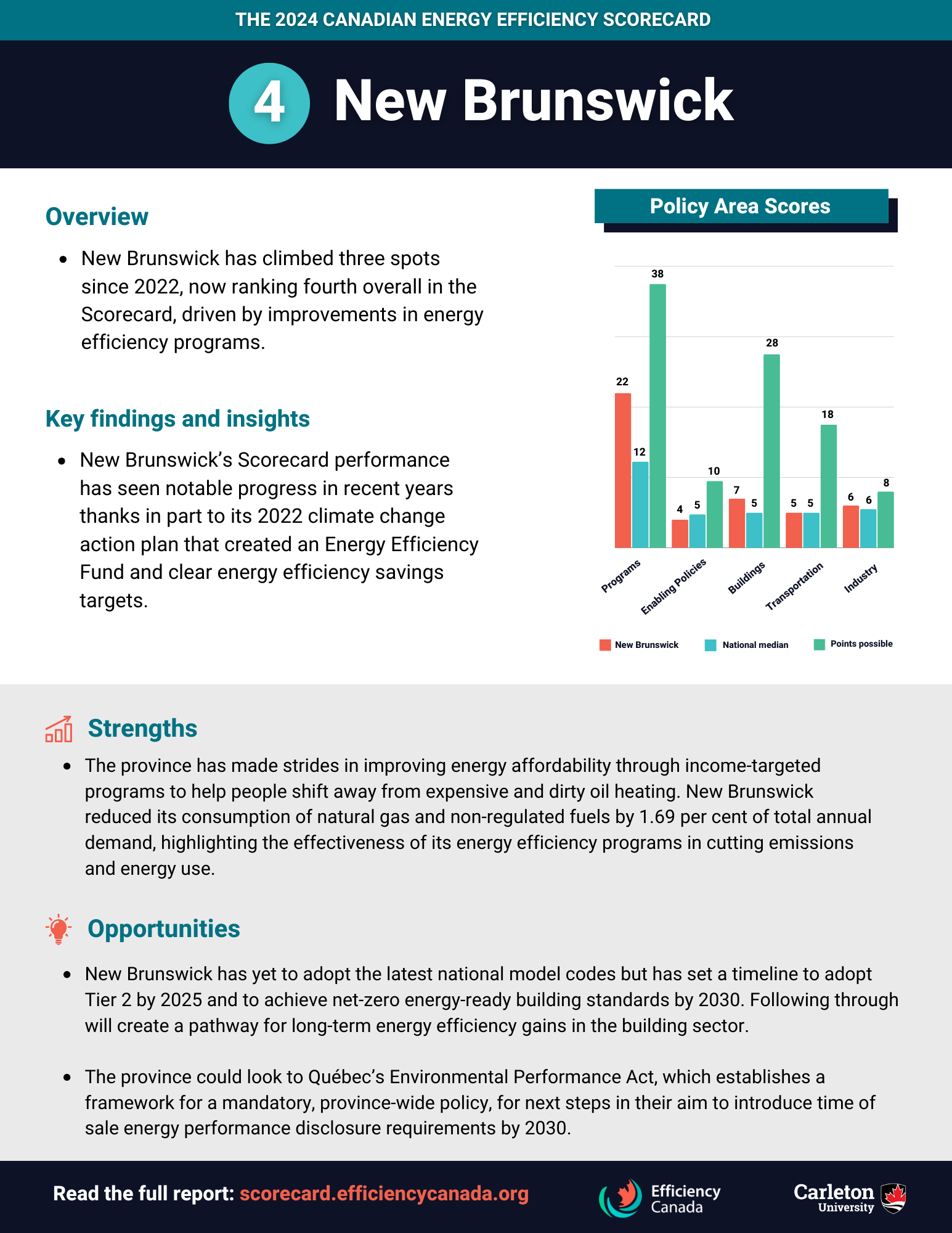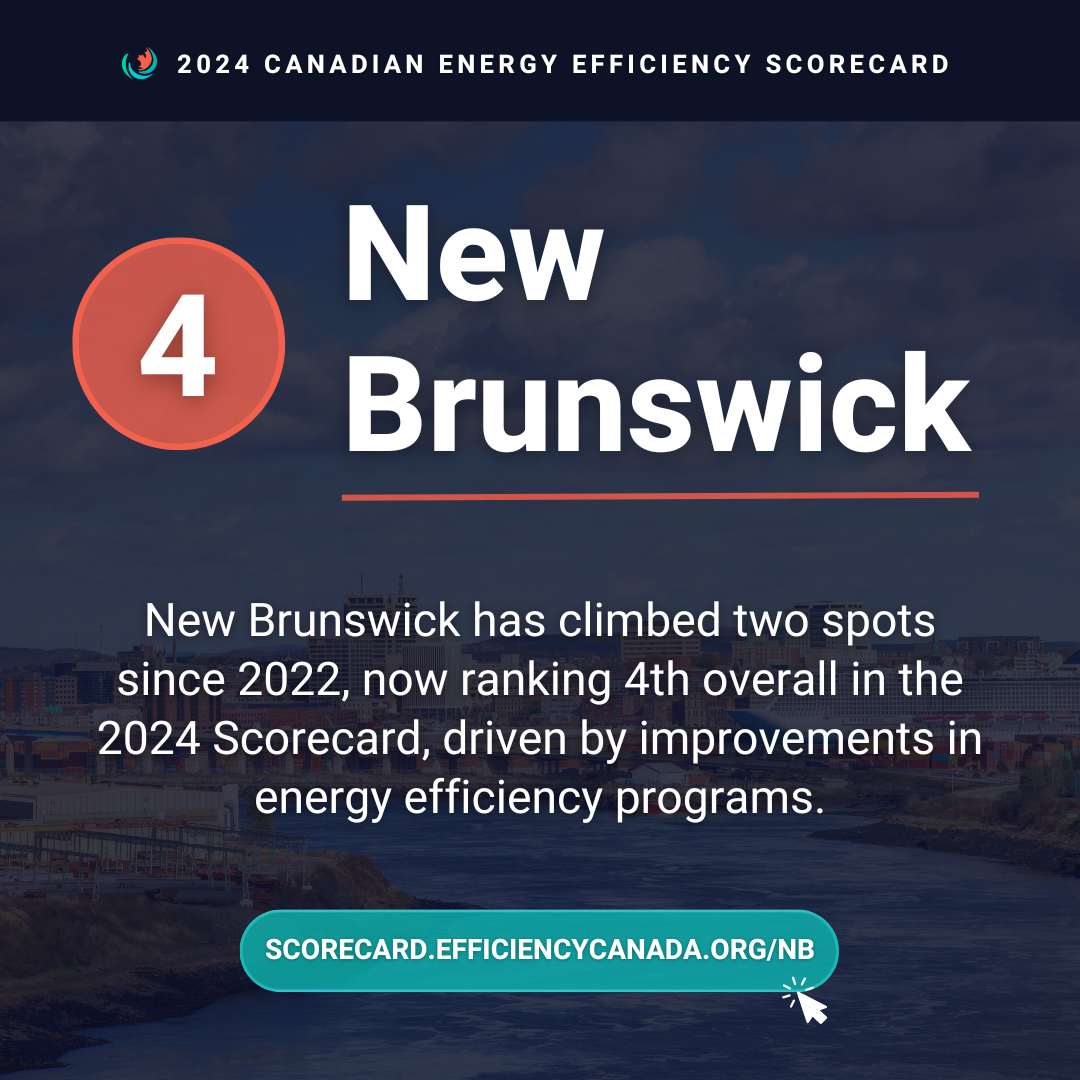Canadian Energy Efficiency Scorecard:
Provinces and Territories
New Brunswick
New Brunswick has climbed three spots since 2022, now ranking fourth overall in the Scorecard, driven by improvements in energy efficiency programs.
Key findings and insights
New Brunswick’s Scorecard performance has seen notable progress in recent years thanks in part to its 2022 climate change action plan that created an Energy Efficiency Fund and clear energy efficiency savings targets.
Strengths
The province has made strides in improving energy affordability through income-targeted programs to help people shift away from expensive and dirty oil heating.
New Brunswick reduced its consumption of natural gas and non-regulated fuels by 1.69 per cent of total annual demand, highlighting the effectiveness of its energy efficiency programs in cutting emissions and energy use.
Opportunities
New Brunswick has yet to adopt the latest national model codes but has set a timeline to adopt Tier 2 by 2025 and to achieve net-zero energy-ready building standards by 2030.
Following through will create a pathway for long-term energy efficiency gains in the building sector.
The province could look to Québec’s Environmental Performance Act, which establishes a framework for a mandatory, province-wide policy, for next steps in their aim to introduce time of sale energy performance disclosure requirements by 2030.
Policy Area Scores
New Brunswick
National median
Points possible
Programs
22 points
12 points
38 points
Enabling policies
4 points
5 points
10 points
Buildings
7 points
5 points
28 points
Transportation
5 points
5 points
18 points
Industry
6 points
6 points
8 points
* Points are rounded to the nearest whole number. Totals might not sum due to rounding.
2024 Scorecard ranking

British Columbia

Prince Edward Island

Québec

New Brunswick

Nova Scotia

Ontario

Yukon

Manitoba

Saskatchewan

Newfoundland and Labrador

Alberta

Nova Scotia
40/100 Points
Prince Edward Island
45/100 Points
New Brunswick
43/100 Points
Newfoundland and Labrador
14/100 Points
Québec
45/100 Points
Ontario
33/100 Points
Manitoba
30/100 Points
Saskatchewan
16/100 Points
Alberta
8/100 Points
British Columbia
54/100 Points
Yukon
32/100 Points
2024 Scorecard ranking

British Columbia
54/100 Points

Prince Edward Island
45/100 Points

Québec
45/100 Points

New Brunswick
43/100 Points

Nova Scotia
40/100 Points

Ontario
33/100 Points

Yukon
32/100 Points

Manitoba
30/100 Points

Saskatchewan
16/100 Points

Newfoundland and Labrador
14/100 Points

Alberta
8/100 Points



